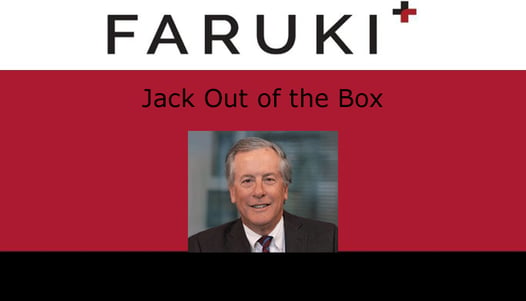- July 11, 2024
- Jack Greiner
- Jack Out of the Box
 The Vermont Supreme Court recently disposed of a defamation case brought by a man who was upset over being called "litigious." That label is a matter of opinion, and there was some doubt whether the defendant even said it.
The Vermont Supreme Court recently disposed of a defamation case brought by a man who was upset over being called "litigious." That label is a matter of opinion, and there was some doubt whether the defendant even said it.
Zygmunt Joe Dever, the plaintiff, was performing work at Amy's Bakery in Brattleboro. Defendant Amy Comerchero owned the business. Defendant Christopher Dugan owned the property where the business was located. Mr. Dever alleged in his complaint that Mr. Dugan stated "that, as owner of [the] property, he had the right to approve or refuse, anyone doing work in or on his building," and "he would not allow [Dever] to work in his building" because "[Dever] had sued people for whom he had worked in the past," and "there was a good chance" that Dever would sue them and "he didn't want to take that chance."
According to Mr. Dever, Dugan told Comerchero that if she did not terminate Dever immediately, he would evict her. Dever also alleged that Dugan gave Comerchero a list of cases that Dever had been involved in for use in a breach-of-contract case that Dever brought against her. While Dever referred to this list of cases as "malicious defamation," Dever did not deny he was involved in those suits.
The trial court concluded that Mr. Dever failed to allege that Dugan made any false and defamatory statement concerning him. Taking the factual allegations contained in the complaint as true, the court considered Dugan's statement about who could work in his building and whether he would evict Comerchero to be irrelevant to whether there was an untrue or defamatory statement of fact. It found the statement that "[plaintiff] has sued people for whom he worked in the past" to be a true statement.
The trial court found that the second part of the statement, "there is a good chance that [plaintiff] would sue" Comerchero or Dugan or both, and "he didn't want to take that chance" did not assert a fact. It was an opinion about what the future might hold. The court emphasized that not every derogatory statement about another person constituted defamation. Expressions of opinion are protected by the First Amendment.
The trial court also rejected Dever's assertion that calling him "litigious" was defamatory. It first noted that Dever made no specific allegation that Dugan ever published such a statement. The closest Dever came to asserting such a claim against Dugan was in his answer to the motion to dismiss, where he referenced Comerchero presenting a list of his prior cases in court as "proof" that plaintiff was litigious. The trial court explained that Dugan did not make that statement, and in any event, any statement made in court would be protected by the litigation privilege. The "litigation privilege" protects statements made in court from being used as the basis for a defamation claim. So, even if calling someone "litigious" were defamatory, Mr. Dever failed to present proof that Dugan ever actually said it. That failure of proof was fatal to Mr. Dever's case. The Supreme Court affirmed the trial court's ruling in its entirety.
What the court didn't mention was the irony of a person filing litigation over being called litigious. It's a little like a person saying, "I don't have anger management issues, and I'm going to punch your lights out for saying I do."
